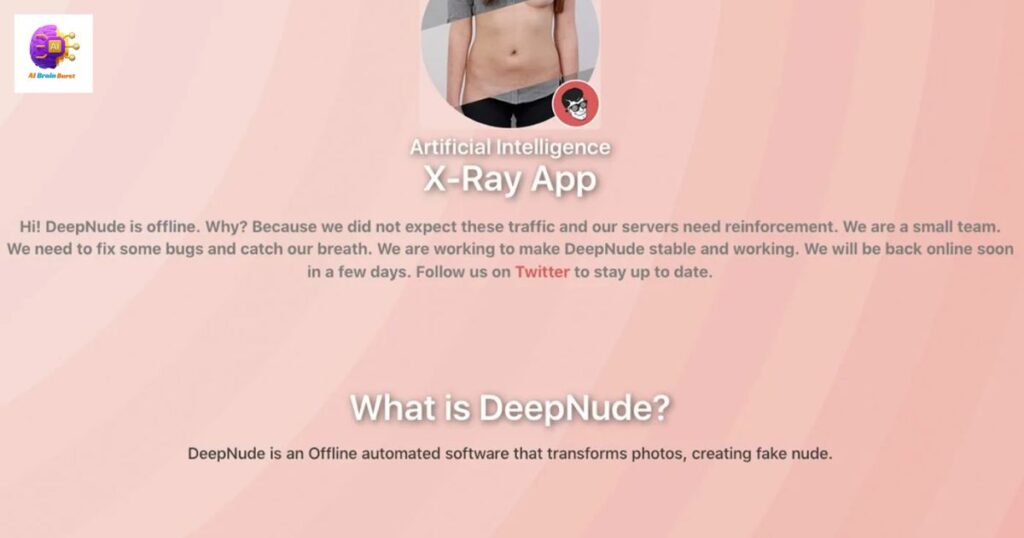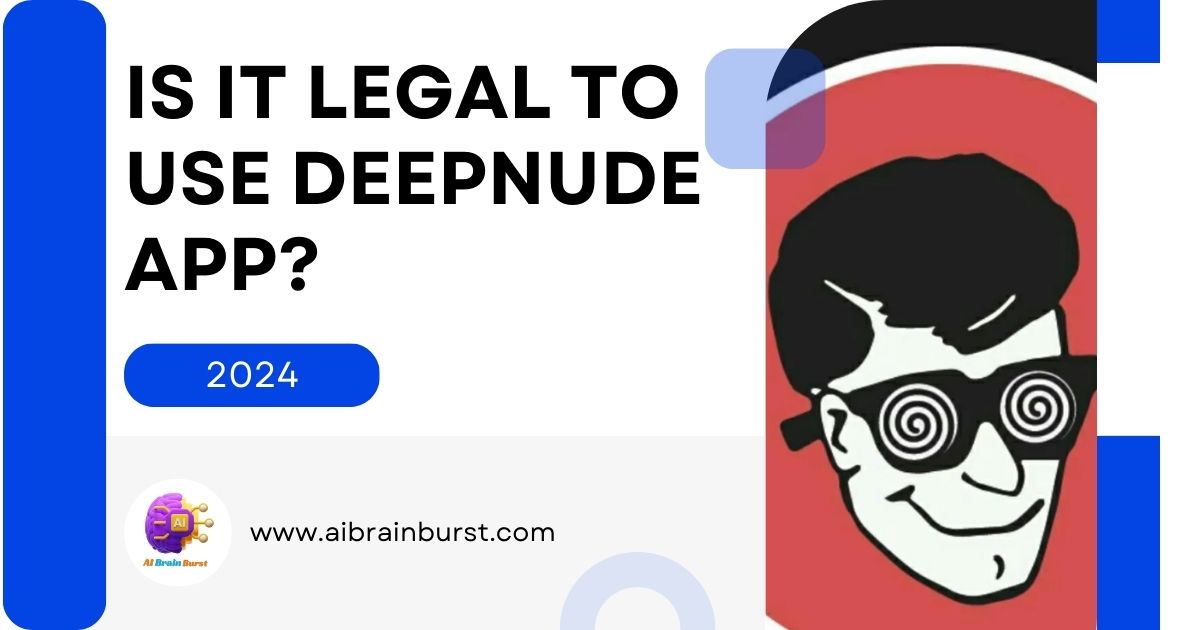The legality of using the DeepNude app has been a contentious topic due to its potential for privacy violations and ethical concerns.
While some argue that using it for artistic or research purposes may be permissible, creating and sharing explicit content without consent can lead to legal repercussions, including criminal charges.
Users must be aware of the legal regulations in their jurisdiction and exercise ethical responsibility to avoid legal consequences when using the DeepNude app.
Curious about the legality of using the DeepNude app? Dive into this quick read to uncover essential insights and tips for navigating the legal landscape.
Discover the do’s and don’ts when it comes to using DeepNude responsibly.
Is DeepNude Safe? A Comprehensive Analysis
When it comes to the safety of DeepNude, there are several critical considerations to keep in mind.
First and foremost, the app’s potential for privacy breaches raises significant concerns.
Users must understand that DeepNude can easily be misused to create explicit content without the consent of individuals, leading to privacy violations and potential harassment issues.
Secondly, the misuse of DeepNude contributes to the larger problem of non-consensual content online, such as revenge porn and cyberbullying.
This misuse not only harms the individuals whose images are altered without consent but also perpetuates harmful behaviors in online spaces.
Users must be aware of these risks and the ethical responsibilities that come with using such technology.
Lastly, while DeepNude itself may not be inherently unsafe if used ethically and legally, it is crucial for users to adhere to safety guidelines.
These guidelines include obtaining explicit consent before modifying images, using the app for ethical purposes such as art or research, respecting privacy by not sharing generated content without consent, and staying informed about legal regulations regarding such technologies.
By following these guidelines, users can help ensure a safer and more responsible use of DeepNude and similar AI-powered tools.
If you’re interested in generating AI Nude for FREE, be sure to prioritize ethical usage and legal compliance.
Safety Considerations:
- DeepNude’s potential for privacy breaches and misuse leading to non-consensual content creation.
- The app’s contribution to larger issues such as revenge porn and cyberbullying.
- Safety guidelines for users, including obtaining consent, ethical usage, privacy respect, and legal compliance.
Are Deepfakes Illegal?
The legality of Deepfakes raises complex questions due to their potential for misuse and deception.
While not inherently illegal, Deepfakes can infringe upon privacy rights and intellectual property laws if used without consent or for malicious purposes.
It’s essential to understand the legal nuances surrounding Deepfakes to navigate their usage responsibly.
Three key points to consider regarding the legality of Deepfakes are:
- Privacy Concerns: Deepfakes can violate individuals’ privacy by creating fabricated content without their consent, leading to potential harm and exploitation.
- Intellectual Property Issues: Unauthorized use of someone’s likeness or copyrighted material in Deepfakes can result in legal repercussions for infringement.
- Misinformation and Fraud: Deepfakes used for spreading false information or committing fraud can be illegal and may lead to legal consequences for those involved in their creation or dissemination.
Understanding these legal aspects is crucial for anyone considering the creation or use of Deepfakes, emphasizing the importance of ethical and lawful practices in digital content manipulation.
Is DeepNude Safe to Use?

The safety of using DeepNude depends on several factors, including how the app is utilized and the ethical considerations of its users.
While DeepNude itself may not pose immediate safety risks when used ethically and legally, its potential for misuse raises significant concerns about privacy and consent.
Users must be aware of the implications of using such technology and take responsible actions to ensure a safe and respectful use of DeepNude.
Three key points to consider regarding the safety of using DeepNude are:
- Ethical Usage: Users should employ DeepNude only for ethical purposes, such as art or research, and avoid creating explicit content without explicit consent.
- Privacy and Consent: Obtaining explicit consent from individuals before modifying their images with DeepNude is crucial to respect their privacy and rights.
- Legal Compliance: Users must stay informed about legal regulations in their jurisdiction regarding the use of DeepNude or similar AI-powered tools to avoid legal consequences for misuse or non-consensual content creation.
Deepfakes have the potential of being a national security risk.
Deepfakes, with their advanced capabilities to manipulate audio and video content convincingly, indeed pose a significant national security risk.
One major concern is their potential to create misleading or false information, which can lead to public panic, destabilize political environments, or even trigger international conflicts.
Moreover, Deepfakes can be used maliciously to impersonate high-profile individuals, including government officials or military leaders, leading to misinformation that can compromise security measures.
Three key points highlighting the national security risk posed by Deepfakes are:
- Misinformation and Disinformation: Deepfakes can spread false narratives or propaganda, undermining trust in institutions and causing social unrest.
- Political Manipulation: Deepfakes can be used to create fake speeches or statements attributed to political figures, influencing public opinion and electoral processes.
- Cybersecurity Threat: The development and dissemination of Deepfakes can be exploited by malicious actors, including foreign adversaries, to launch cyberattacks or espionage activities, posing a direct threat to national security.
Privacy Concerns Raised by the Advent of DeepNude
The advent of DeepNude has brought significant privacy concerns to the forefront, especially regarding the potential misuse of the technology.
One major worry is the unauthorized creation of explicit content using DeepNude, which can violate individuals’ privacy rights and lead to exploitation and harassment.
Additionally, the ease of access and use of DeepNude raises concerns about the proliferation of non-consensual intimate imagery, contributing to broader issues like revenge porn and cyberbullying.
Three key privacy concerns raised by the advent of DeepNude are:
- Non-consensual Content: DeepNude can be used to create explicit images without the consent of the individuals depicted, leading to privacy violations and potential emotional harm.
- Privacy Exploitation: The widespread availability of DeepNude increases the risk of personal privacy exploitation, as individuals’ images can be manipulated and shared without their knowledge or consent.
- Ethical Considerations: The ethical implications of using DeepNude for creating intimate imagery must be carefully considered, as it can lead to harmful consequences for individuals and society at large, impacting trust and safety online.
The Controversial Nature of DeepNude:
The controversial nature of DeepNude stems from its ability to generate realistic nude images of individuals using deep learning algorithms.
This technology has sparked debates and raised ethical concerns about privacy, consent, and the potential for misuse.
Critics argue that DeepNude’s existence contributes to the objectification of individuals and perpetuates harmful stereotypes, particularly regarding body image and consent.
Three key aspects highlighting the controversial nature of DeepNude are:
- Privacy and Consent: DeepNude’s ability to create nude images without consent raises significant privacy and ethical questions, especially regarding the unauthorized use of individuals’ likenesses.
- Potential Misuse: The ease of access to DeepNude and its potential for misuse, such as creating non-consensual explicit content, contributes to broader issues like revenge porn and cyberbullying.
- Ethical Implications: The development and availability of DeepNude prompt discussions about responsible AI usage, ethical considerations in technology development, and the need for regulatory frameworks to address emerging challenges in digital content manipulation.
1. Misuse and Non-consensual Content
Misuse and non-consensual content creation are significant concerns associated with DeepNude and similar technologies.
The ease of use and accessibility of these tools can lead to their misuse for generating explicit content without the consent of individuals depicted.
This misuse contributes to the larger problem of non-consensual intimate imagery online, including revenge porn and cyberbullying, which can have severe emotional and psychological impacts on victims.
Three key points regarding misuse and non-consensual content associated with DeepNude are:
- Privacy Violations: Creating and sharing non-consensual explicit content using DeepNude violates individuals’ privacy rights and can lead to personal harm and exploitation.
- Ethical Considerations: The ethical implications of using DeepNude for generating non-consensual content must be carefully considered, emphasizing the importance of responsible AI usage and respecting individuals’ rights.
- Legal Ramifications: Misusing DeepNude to create and distribute non-consensual explicit imagery may have legal consequences, including potential criminal charges and civil lawsuits for infringement of privacy and intellectual property rights.
2. Potential Legal Issues
Potential legal issues surrounding DeepNude revolve around the creation and distribution of explicit content without consent.
Using DeepNude to generate and share non-consensual intimate imagery can lead to legal consequences, including violations of privacy laws and intellectual property rights.
Additionally, the unauthorized use of someone’s likeness or copyrighted material in DeepNude creations may result in legal liabilities for individuals involved in such activities.
Three key legal issues associated with DeepNude are:
- Non-consensual Content: Creating and sharing explicit content without the consent of individuals depicted can violate privacy laws and lead to legal action.
- Intellectual Property Infringement: Unauthorized use of copyrighted material or someone’s likeness in DeepNude creations may result in intellectual property infringement claims.
- Criminal Charges: Misusing DeepNude for illegal activities, such as creating and distributing revenge porn, cyberbullying, or harassment, can lead to criminal charges and penalties under applicable laws.
Safety Guidelines for DeepNude Users

Safety guidelines are essential for DeepNude users to ensure responsible and ethical usage of the technology.
First and foremost, obtaining explicit consent from individuals before modifying their images with DeepNude is crucial to respect their privacy and rights.
Secondly, users should limit their use of DeepNude to ethical and legal purposes, such as art or research, and avoid creating explicit content without consent.
Additionally, users must be mindful of privacy concerns and avoid sharing any generated content without explicit consent from the individuals involved.
Three key safety guidelines for DeepNude users are:
- Obtain Consent: Always ensure you have explicit consent from the individuals involved before using DeepNude to modify their images.
- Use Ethically: Limit your use of DeepNude to ethical and legal purposes, such as art or research, and avoid creating explicit content without consent.
- Respect Privacy: Be mindful of privacy concerns and avoid sharing any generated content without explicit consent from the individuals involved.
1. Obtain Consent
Obtaining consent is a fundamental ethical principle when using technologies like DeepNude.
Before modifying or sharing any images using DeepNude, it’s crucial to obtain explicit consent from the individuals depicted in those images.
This not only respects their privacy and rights but also helps prevent potential legal issues related to unauthorized use of their likeness.
Three key points regarding obtaining consent when using DeepNude are:
- Prior Authorization: Always seek explicit authorization from individuals before using DeepNude to modify or create images featuring them.
- Clear Communication: Clearly communicate the purpose and intended use of the modified images to ensure that individuals understand and consent to the process.
- Respect Boundaries: Respect the boundaries and preferences of individuals regarding the use of their images, especially when dealing with sensitive or intimate content.
2. Use Ethically
Using DeepNude ethically is paramount to avoid potential harm and legal repercussions.
Ethical usage entails limiting the application to lawful purposes, such as art, education, or research, and refraining from creating or sharing explicit content without explicit consent.
By adhering to ethical guidelines, users can contribute to a safer and more responsible use of DeepNude and similar technologies.
Three key points regarding the ethical use of DeepNude are:
- Purposeful Use: Use DeepNude only for ethical and legal purposes, such as creating artistic or educational content, and avoid engaging in activities that may harm individuals or violate their rights.
- Consent and Respect: Obtain explicit consent from individuals before using DeepNude to modify or create images featuring them, and respect their privacy and boundaries throughout the process.
- Legal Compliance: Stay informed about legal regulations and guidelines regarding the use of DeepNude to ensure compliance with applicable laws and avoid potential legal consequences for unethical or unlawful activities.
3. Respect Privacy
Respecting privacy is a fundamental principle when using DeepNude or any similar technology.
It involves safeguarding individuals’ personal information, including images, and ensuring that their privacy rights are not infringed upon.
When using DeepNude, it’s crucial to handle generated content with care and only share it with explicit consent from the individuals involved.
Three key points regarding respecting privacy when using DeepNude are:
- Consent: Always obtain explicit consent from individuals before modifying or sharing any images using DeepNude.
- Data Protection: Safeguard generated content and personal information to prevent unauthorized access or misuse.
- Transparency: Be transparent about the use and purpose of DeepNude-generated content, ensuring that individuals are aware of how their images will be used and shared.
4. Stay Informed
Staying informed is crucial for DeepNude users to navigate legal and ethical considerations effectively.
It involves keeping up-to-date with the latest developments, regulations, and guidelines related to the use of DeepNude and similar AI-powered tools.
By staying informed, users can make informed decisions, mitigate risks, and ensure responsible usage of the technology.
Three key points regarding staying informed when using DeepNude are:
- Legal Regulations: Stay updated on legal regulations in your jurisdiction regarding the creation, modification, and sharing of explicit content to avoid legal consequences.
- Ethical Guidelines: Familiarize yourself with ethical guidelines and best practices for using DeepNude responsibly, including obtaining consent, respecting privacy, and avoiding misuse.
- Security Updates: Stay informed about security updates and measures to protect your data and prevent unauthorized access to DeepNude-generated content.
A Straddle Between Innovation and Invasion
The intersection between innovation and invasion is a delicate balance that technologies like DeepNude often straddle.
On one hand, these advancements showcase the marvels of AI and its potential for creativity and problem-solving.
However, on the other hand, they raise concerns about privacy invasion, ethical dilemmas, and societal impacts.
This duality highlights the need for careful consideration and responsible use of such technologies to harness their benefits while mitigating potential harms.
| Aspect | Innovation | Invasion |
|---|---|---|
| Privacy | Opportunities for privacy-enhancing features in AI. | Risks of privacy breaches and unauthorized access. |
| Ethical Considerations | Encouraging ethical AI development and usage. | Potential for misuse and ethical dilemmas. |
| Societal Impacts | Positive impacts on society, such as improved efficiency and convenience. | Negative impacts, such as erosion of privacy and social trust. |
FAQ’s
Are AI undressing apps illegal?
AI undressing apps raise legal concerns due to privacy violations and potential misuse. While not inherently illegal, their use for creating non-consensual explicit content can lead to legal repercussions, including violations of privacy and intellectual property rights.
Is undress AI accurate?
The accuracy of undress AI varies based on factors like the quality of training data and the sophistication of algorithms. While it can generate realistic-looking images, it’s essential to note that accuracy doesn’t justify unethical or illegal uses, such as creating non-consensual explicit content.
Are AI images legal?
AI-generated images are generally legal if created ethically and with proper consent. However, using AI to generate images without consent or for unlawful purposes, such as copyright infringement or privacy violations, can lead to legal consequences.
Why is AI art not illegal?
AI art is not inherently illegal as long as it complies with copyright laws and ethical standards. The legality of AI-generated art depends on factors like the source materials used, the creator’s rights, and adherence to intellectual property regulations.
Is AI art illegal to sell?
AI-generated art is not illegal to sell if the creator has the necessary rights, permissions, and licenses for the source materials. However, selling AI art without proper authorization or infringing on copyrighted content can lead to legal issues.
Are deep AI images copyright-free?
Deep AI images are not automatically copyright-free. Copyright laws apply to AI-generated content, and ownership rights depend on factors such as the source materials used, the creator’s rights, and any applicable licenses or agreements.
Conclusion
In conclusion, the use of AI undressing apps and similar technologies raises complex legal and ethical considerations.
While these apps are not inherently illegal, their potential for misuse, such as creating non-consensual explicit content, can lead to legal repercussions and privacy violations.
It’s crucial for users and developers to understand and adhere to ethical guidelines, obtain explicit consent, and respect privacy rights to ensure responsible use of AI technologies in digital content manipulation.
Moreover, the ongoing advancements in AI highlight the need for robust legal frameworks and ethical standards to address emerging challenges in technology development.
Striking a balance between innovation and ethical considerations is key to harnessing the benefits of AI while mitigating potential harms.
Moving forward, a collaborative effort involving policymakers, tech developers, and users is essential to foster a safe and ethical digital environment.








